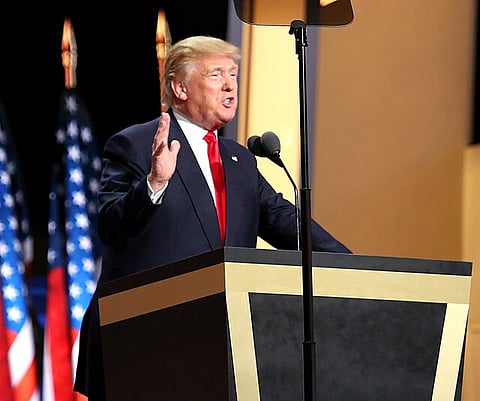

The Trump administration has unveiled a proposed rule to impose fixed time limits on visas for international students, exchange visitors, and foreign journalists, marking a significant shift in U.S. immigration policy. The change would replace the current "duration of status" framework which allows visa holders to remain in the U.S. indefinitely as long as they comply with program requirements with strict admission periods. Under the new rule, F visas for students and J visas for exchange visitors would be limited to a maximum of four years, while I visas for journalists would be capped at 240 days, with Chinese nationals restricted to 90 days. The Department of Homeland Security (DHS) argues this will enhance oversight and prevent "visa abuse" by ensuring regular vetting of temporary residents.
Rationale and National Security Justification
DHS contends the reform is necessary to address national security concerns and curb exploitation of the immigration system. In a statement, the agency accused past administrations of allowing "foreign students to remain in the U.S. virtually indefinitely," costing taxpayers and disadvantaging American citizens. The rule would require visa holders to apply for extensions through U.S. Citizenship and Immigration Services (USCIS), subjecting them to additional screenings. DHS cited instances of Chinese nationals on J-1 visas engaging in espionage as partial justification for the stricter controls. Critics, however, argue the policy overlooks the academic realities of prolonged degree programs like PhDs, which often exceed four years.
Impact on International Students and Academia
The proposed changes could disrupt higher education significantly. With over 1.6 million international students in the U.S. in 2024, universities fear declining enrollment and financial strain due to heightened bureaucratic hurdles. Students would face constraints on program transfers, extensions, and post-graduation work opportunities like Optional Practical Training (OPT). For instance, those needing more than four years to complete degrees would need to prove "compelling academic reasons" for extensions, such as medical issues or research delays. Additionally, the rule eliminates deference to prior visa approvals, likely increasing application denials and legal uncertainty for students and employers.
Effects on Journalists and Exchange Programs
Foreign media representatives would encounter severe restrictions under the proposed rule. While I visas currently align with assignment durations, the new 240-day cap, 90 days for Chinese journalists, would necessitate frequent renewal applications, potentially hindering long-term investigative reporting. Exchange programs (J-1 visas), which host around 355,000 participants annually, would similarly be constrained to four-year limits, affecting research scholars, physicians, and cultural workers. The administration claims these measures will improve monitoring, but press freedom advocates warn they could stifle international media coverage and academic collaboration.
Political Context and Broader Immigration Crackdown
This proposal mirrors a 2020 effort by the Trump administration that was later withdrawn under President Biden. It aligns with broader immigration restrictions enacted since January 2025, including revoked temporary protections for migrants, increased deportations, and heightened scrutiny of legal status adjustments. The 30-day public comment period precedes expected legal challenges from educational and advocacy groups. NAFSA, representing international educators, previously opposed similar measures, arguing they undermine America’s global competitiveness. The rule reflects the administration’s emphasis on "ideological compliance," as seen in recent visa revocations for students involved in pro-Palestine protests.